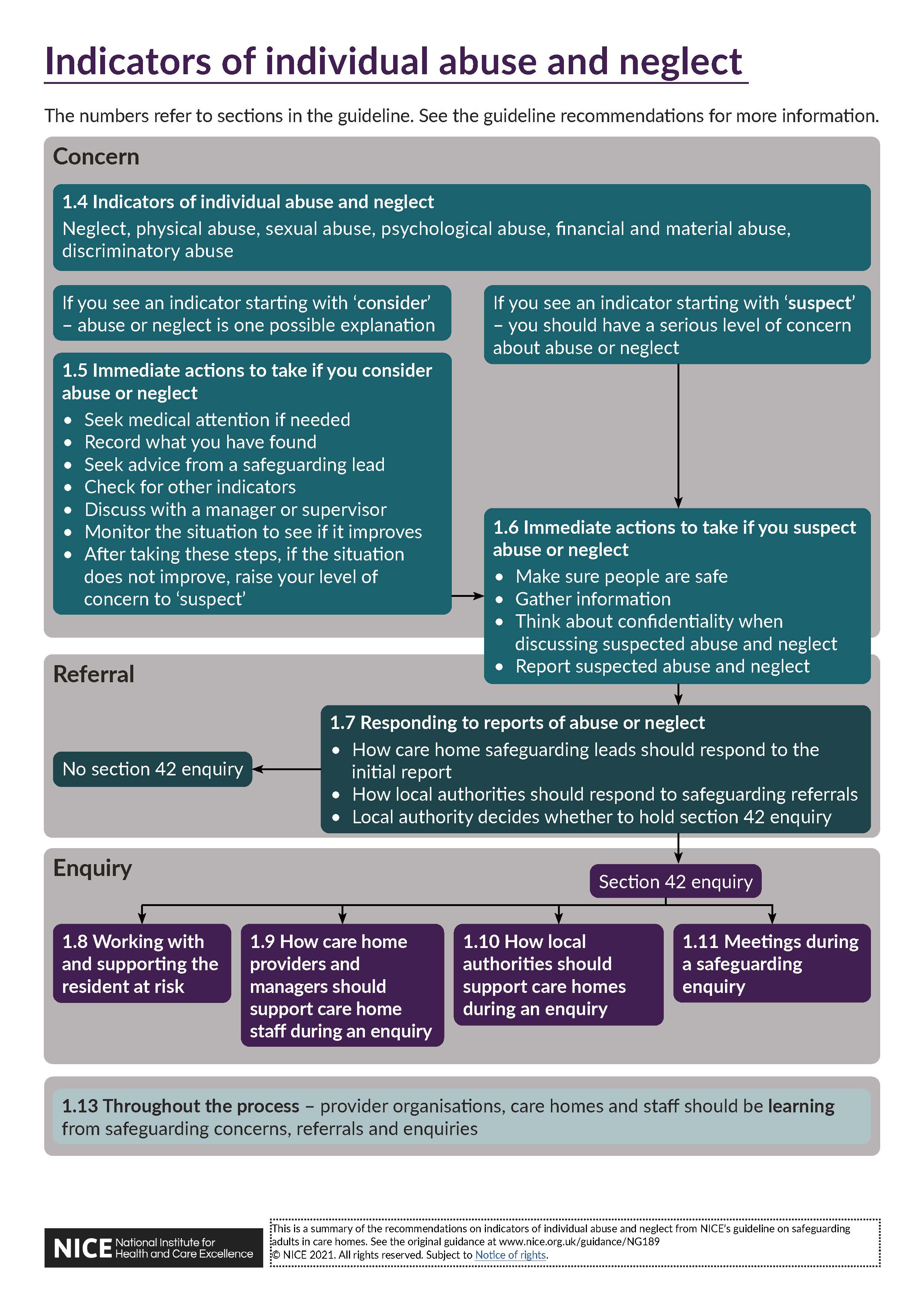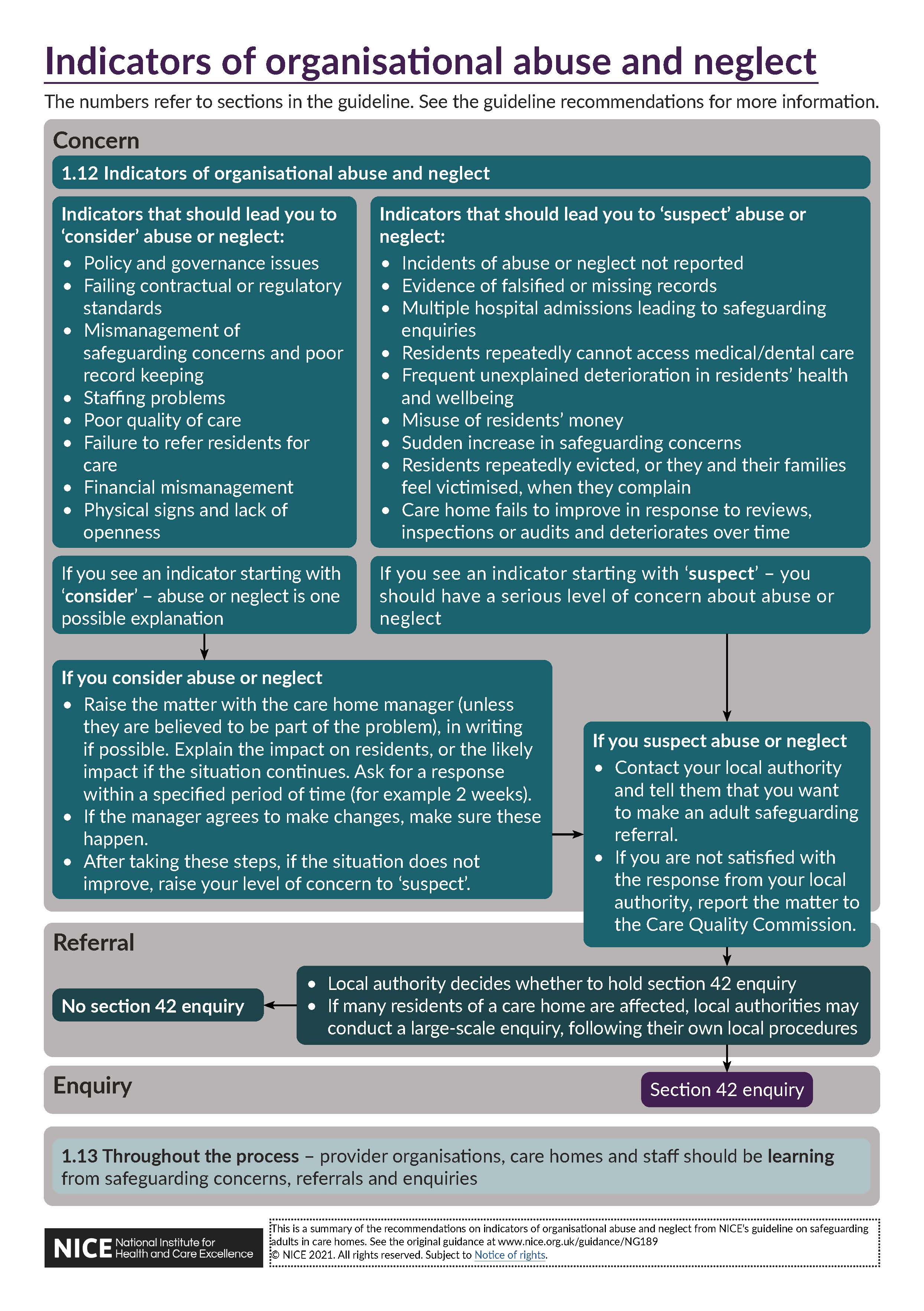Overview
This guideline covers keeping adults in care homes safe from abuse and neglect. It includes potential indicators of abuse and neglect by individuals or organisations, and covers the safeguarding process from when a concern is first identified through to section 42 safeguarding enquiries. There are recommendations on policy, training, and care home culture, to improve care home staff awareness of safeguarding and ensure people can report concerns when needed.
Recommendations
The guideline includes recommendations on:
- induction and training
- care home culture and management
- indicators of individual abuse and neglect
- immediate actions to take if you consider or suspect abuse or neglect
- how care home safeguarding leads and local authorities should respond to reports of abuse or neglect
- indicators of organisational abuse and neglect
See visual summaries on the recommendations for indicators of individual abuse and neglect and organisational abuse and neglect.
Who is it for?
- Care home providers, managers, staff and volunteers
- Other health and social care practitioners working with adults in care homes
- Health and social care commissioners of residential care for adults
- Local authorities and Safeguarding Adults Boards
- Adults living in care homes, their families, friends, carers and advocates, and the public
Guideline development process
How we develop NICE guidelines
Your responsibility
The recommendations in this guideline represent the view of NICE, arrived at after careful consideration of the evidence available. When exercising their judgement, professionals and practitioners are expected to take this guideline fully into account, alongside the individual needs, preferences and values of their patients or the people using their service. It is not mandatory to apply the recommendations, and the guideline does not override the responsibility to make decisions appropriate to the circumstances of the individual, in consultation with them and their families and carers or guardian.
All problems (adverse events) related to a medicine or medical device used for treatment or in a procedure should be reported to the Medicines and Healthcare products Regulatory Agency using the Yellow Card Scheme.
Local commissioners and providers of healthcare have a responsibility to enable the guideline to be applied when individual professionals and people using services wish to use it. They should do so in the context of local and national priorities for funding and developing services, and in light of their duties to have due regard to the need to eliminate unlawful discrimination, to advance equality of opportunity and to reduce health inequalities. Nothing in this guideline should be interpreted in a way that would be inconsistent with complying with those duties.
Commissioners and providers have a responsibility to promote an environmentally sustainable health and care system and should assess and reduce the environmental impact of implementing NICE recommendations wherever possible.

